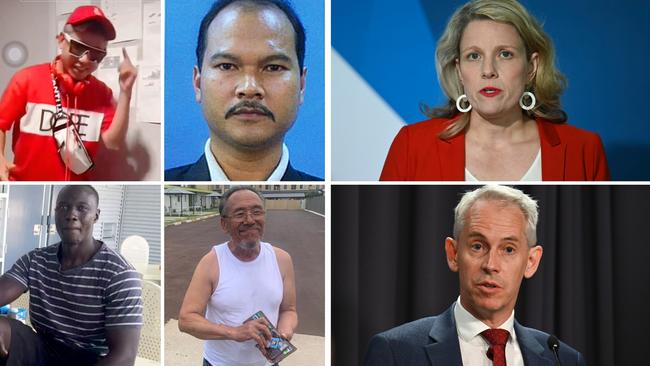
It beggars belief that it required the Coalition to demand documents from Home Affairs in a senate inquiry to discover that among the mass release of detainees, seven were murderers, 37 sex offenders and 72 violent criminals.
More astonishing is the absence of action by the government to apply its hastily introduced preventive detention laws in light of this.
We now learn that the Department of Home Affairs in December stopped publishing updated public information, claiming that it was moving to a monthly reporting system.
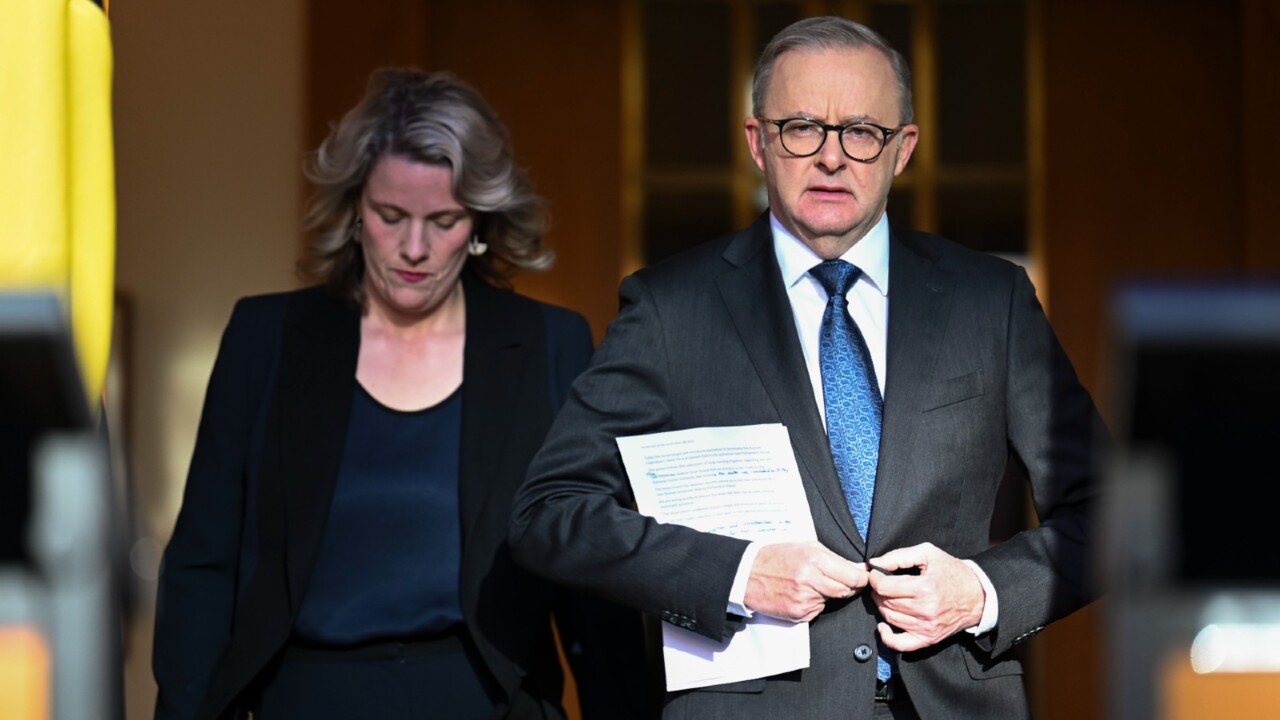
In terms of the pledge of transparency, the Home Affairs minister should have been providing regular reports on an issue of community safety. The NZYQ case, which triggered the political drama last November, was always going to come back and bite the government.
But it appears to have learnt nothing from the experience.
Immigration Minister Andrew Giles was caught hopelessly flat-footed over the High Court decision, with the Home Affairs Minister Clare O’Neil embarrassed into passing preventive detention laws to remedy the problem. Since then, it has not sought to use those laws once.
This is despite the admission that those released included detainees who had been convicted of some of the most violent crimes, with some having reoffended within weeks of being released.
Anthony Albanese’s justification was that the government didn’t want to apply for a preventative detention order that was not successful. This suggests a weakness in the legislation as well.
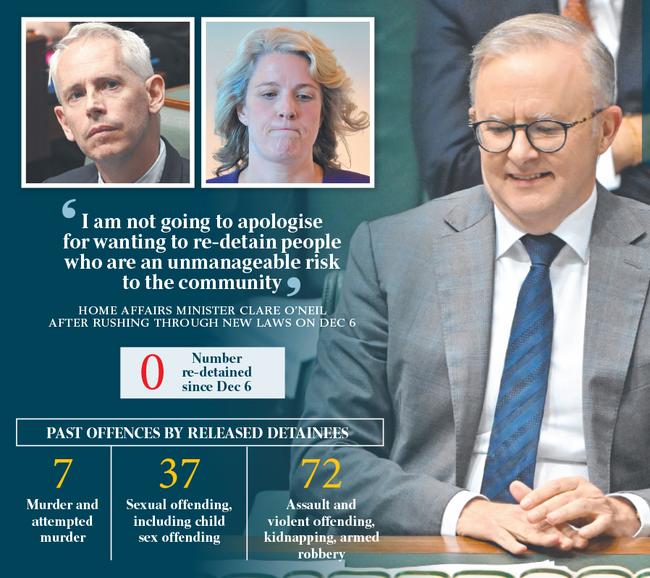
“We are taking advice and we will take action for everyone who the advice suggests can be successfully detained,” he said.
Giles was a deer in headlights in parliament on Monday when the opposition unsurprisingly seized on the ongoing confusion. Asked five times by immigration spokesman Dan Tehan about how many of the convicted offenders had been required to wear an ankle bracelet, Giles had only one answer.
The government had established a community protection board to assess each case and he thanked them for their service.
No one is any the wiser. Of the 149 detainees released so far, 24 have reoffended and 18 have been charged by police. How many are still in custody is unknown. It’s still a government secret as to whether those who had reoffended were those who had previous convictions of the worst kind.
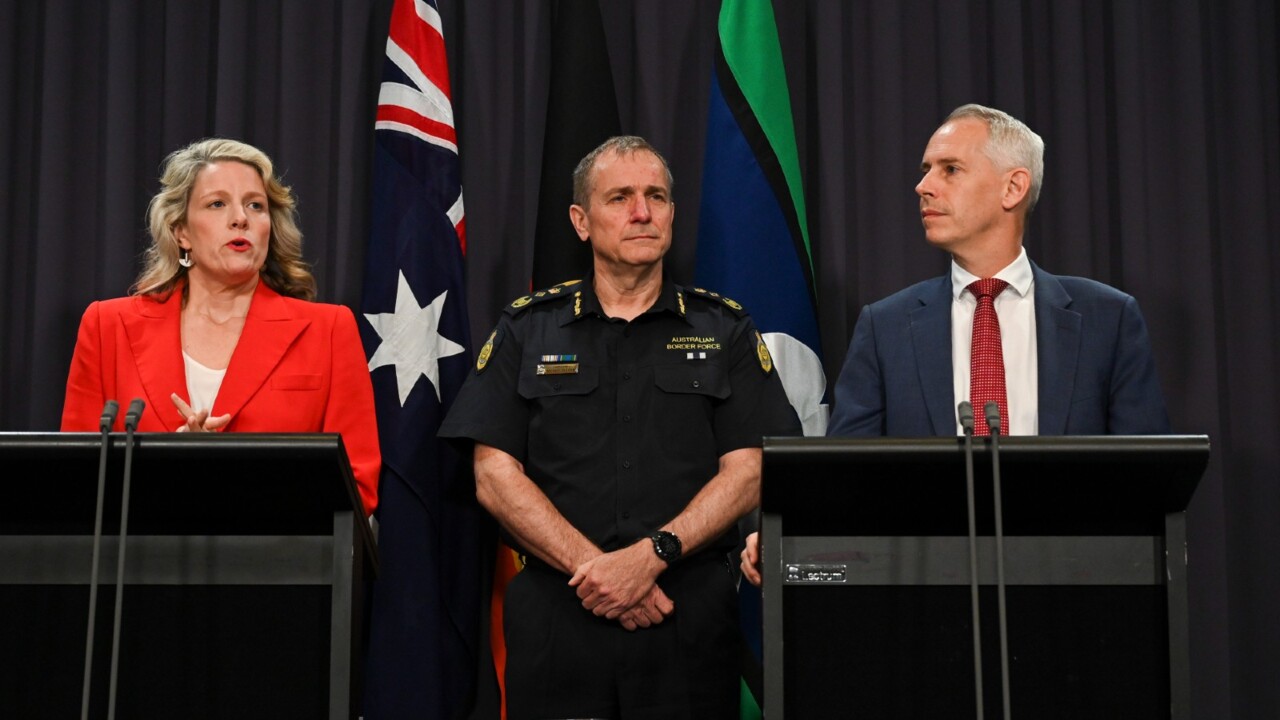
This issue epitomised the poor political management that had infected the Albanese government in the last six months of 2023.
While the government has since got its act together on other fronts, on this it appears the memo didn’t go out from central command.
This was a political problem of its own making and one that caused significant political damage to the government in the lead-up to Christmas. Giles appeared to be as ill-prepared for the inevitability that it would reappear on the radar as he was when it first landed.
This was a problem that was never easily going to be put back in a box for long. And once again, the government is floundering in its response.



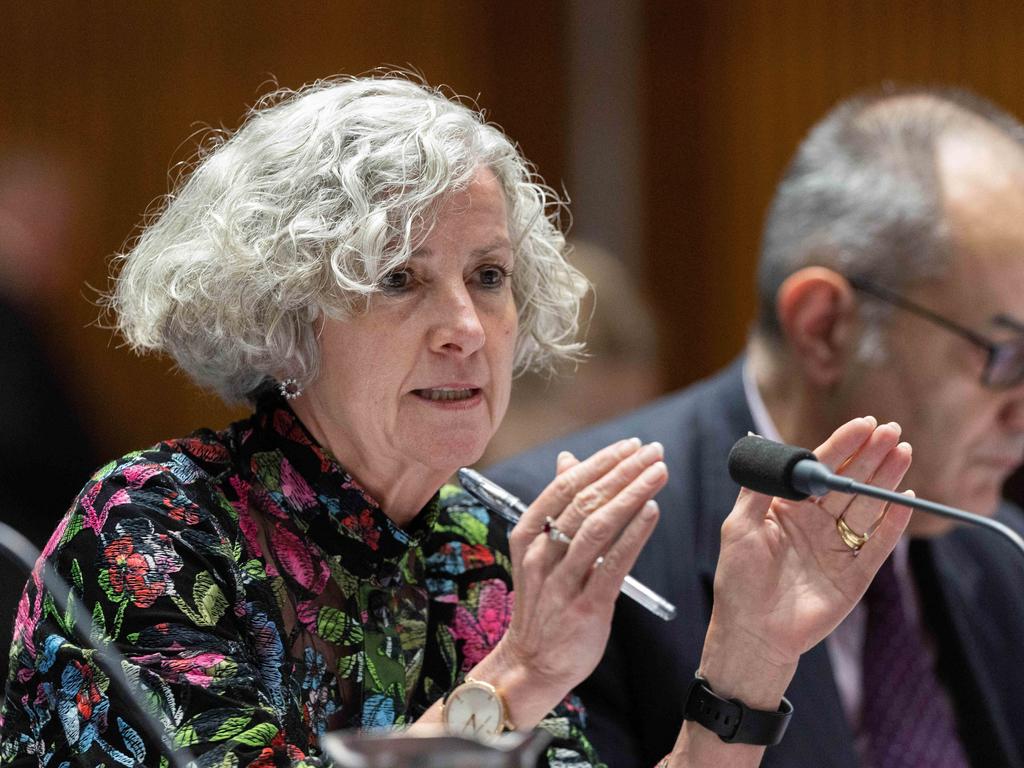



The Albanese government has learnt little from its brush with political death last year over the High Court decision on immigration detention.